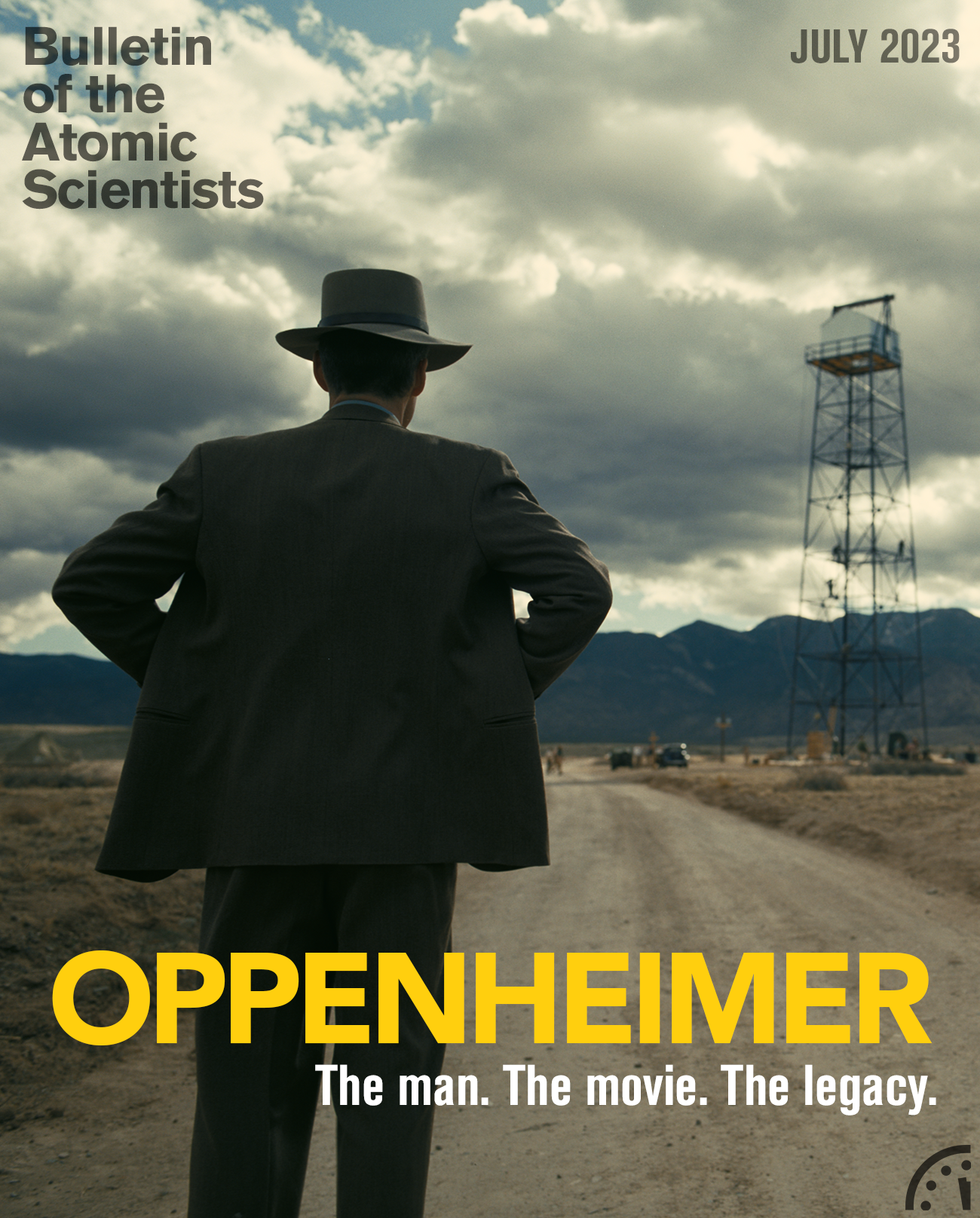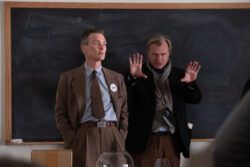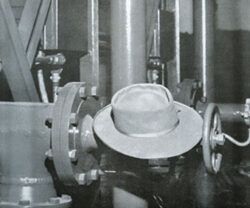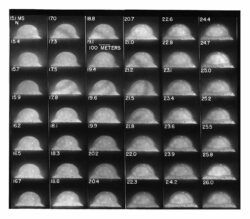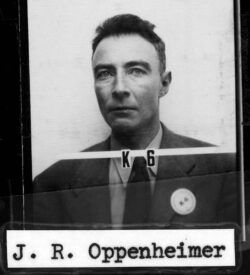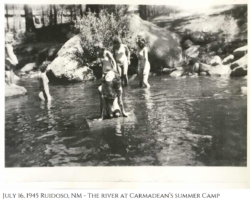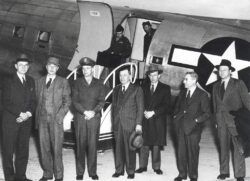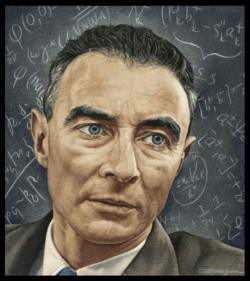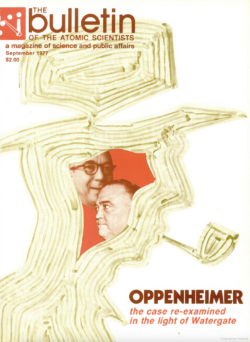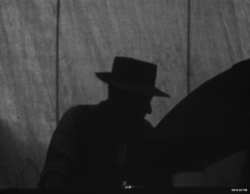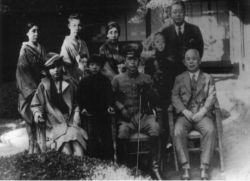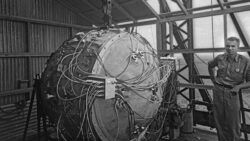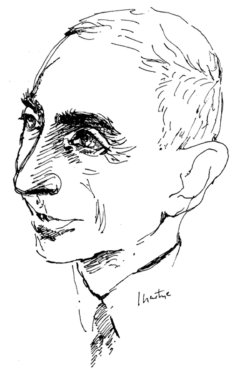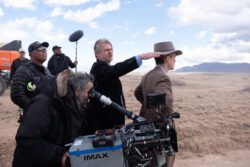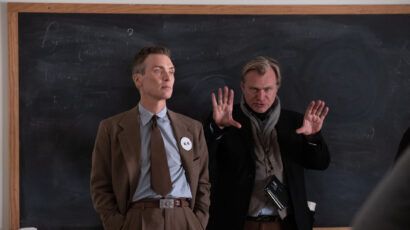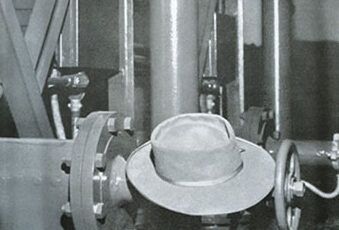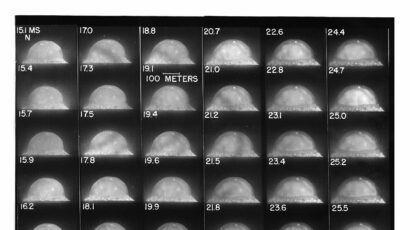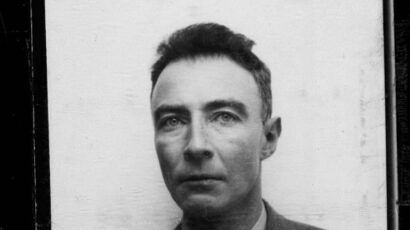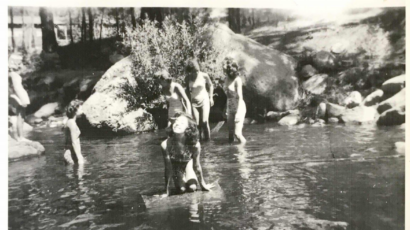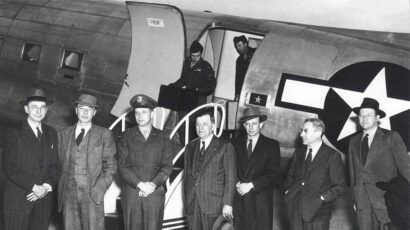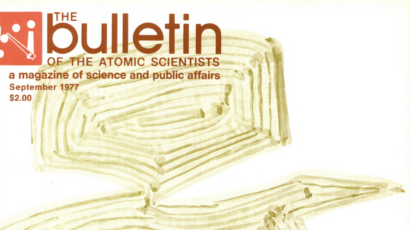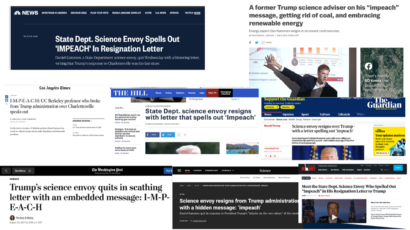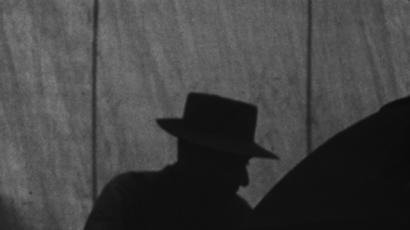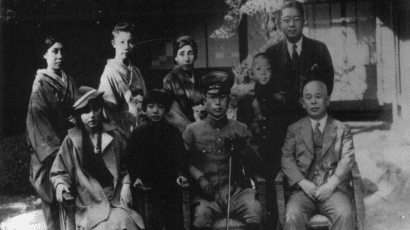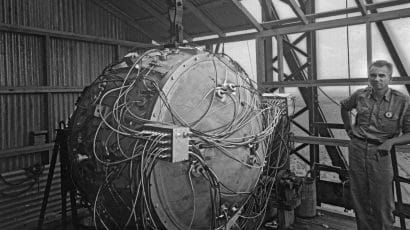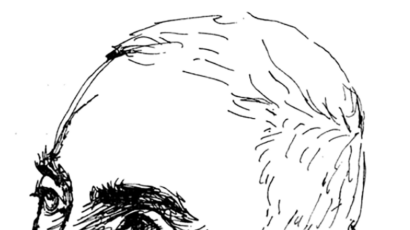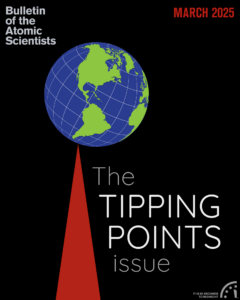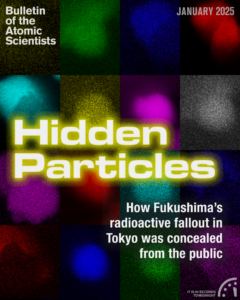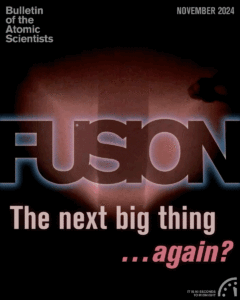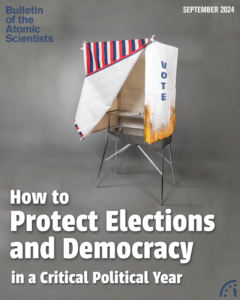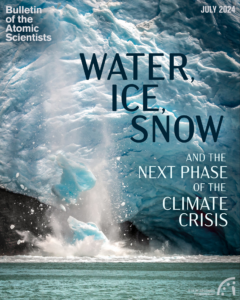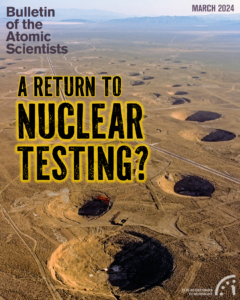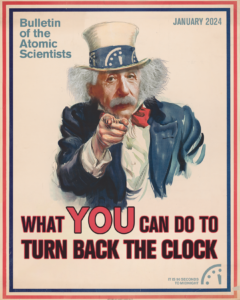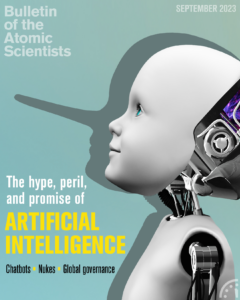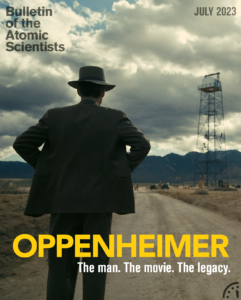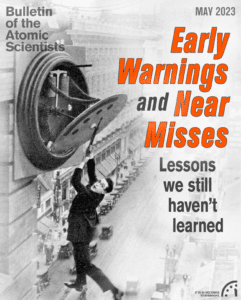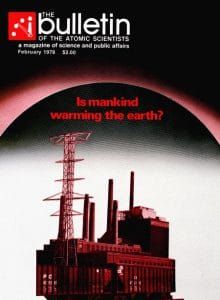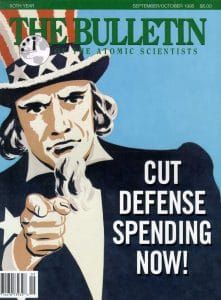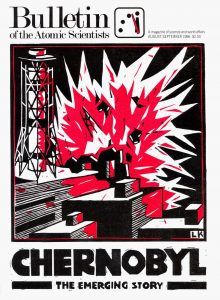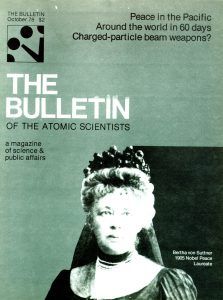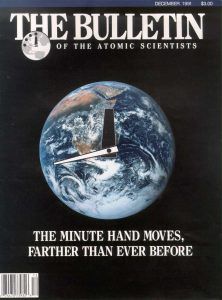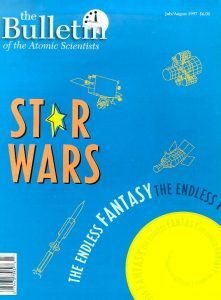DIGITAL MAGAZINE
July 2023
DIGITAL MAGAZINE
July 2023
Cover design by Thomas Gaulkin. Image courtesy of Universal Pictures
Introduction — Oppenheimer: The man behind the movie
An extended interview with Christopher Nolan, director of Oppenheimer
Oppie—“A very mysterious and delphic character.” Interview with Kai Bird, co-author of American Prometheus
Oppenheimer’s tragedy—and ours
“He did not speak the ordinary language”: Memories of Oppie, from a Manhattan Project physicist
Collateral damage: American civilian survivors of the 1945 Trinity test
Nichols presents charges
Oppenheimer Replies
The Oppenheimer case: A study in the abuse of law
Bulletin statement on the Energy Department’s Oppenheimer decision
Why what happened to Oppenheimer then is relevant now
A timeline of Oppenheimer and his legacy
Hiroshima Memories
A foul and awesome display
A Japanese scholar gives her personal view on J. Robert Oppenheimer
The explosive musical score to Oppenheimer
Nuclear Notebook: French nuclear weapons, 2023
An extended interview with Christopher Nolan, director of Oppenheimer
Oppie—“A very mysterious and delphic character.” Interview with Kai Bird, co-author of American Prometheus
Oppenheimer’s tragedy—and ours
“He did not speak the ordinary language”: Memories of Oppie, from a Manhattan Project physicist
Collateral damage: American civilian survivors of the 1945 Trinity test
Nichols presents charges
Oppenheimer Replies
The Oppenheimer case: A study in the abuse of law
Bulletin statement on the Energy Department’s Oppenheimer decision
Why what happened to Oppenheimer then is relevant now
A timeline of Oppenheimer and his legacy
Hiroshima Memories
A foul and awesome display
A Japanese scholar gives her personal view on J. Robert Oppenheimer
The explosive musical score to Oppenheimer
Nuclear Notebook: French nuclear weapons, 2023
Cover design by Thomas Gaulkin. Image courtesy of Universal Pictures
Subscribe now
We've relaunched the Bulletin's award-winning digital magazine. Get access to every issue and our archive going back to 1945.
Magazine archive
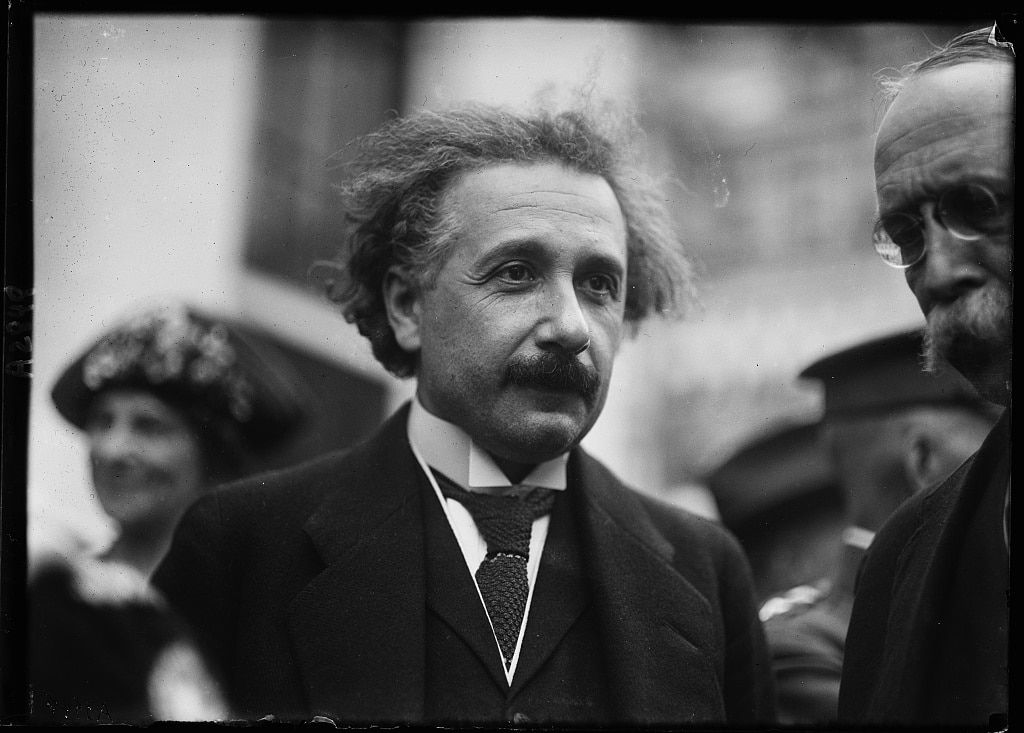
Premium subscribers can read the complete Bulletin of the Atomic Scientists’ archive, which contains every article published since our founding in 1945.
This archive was created in honor of John A. Simpson, one of the Bulletin’s principal founders and a longtime member of its Board of Sponsors. This searchable archive provides exclusive online access to original interviews and commentary by luminaries like Albert Einstein, J. Robert Oppenheimer, Ruth Adams, John F. Kennedy, Stephen Hawking, Christine Todd Whitman, US Secretary of Defense William J. Perry, and multiple Nobel laureates.
